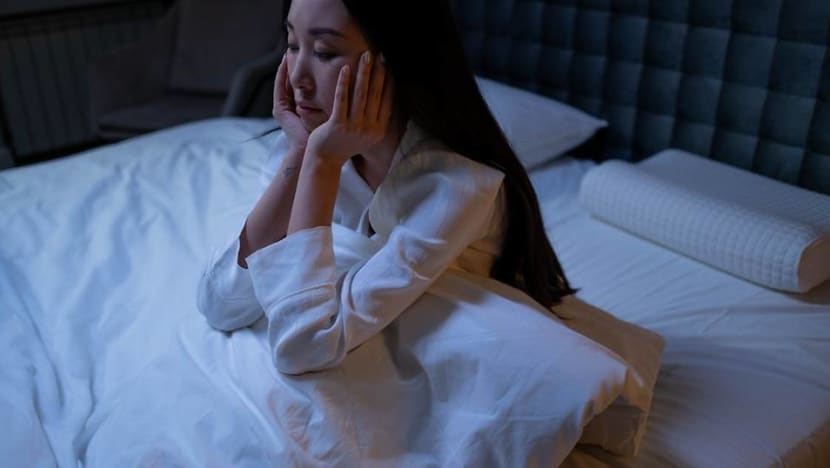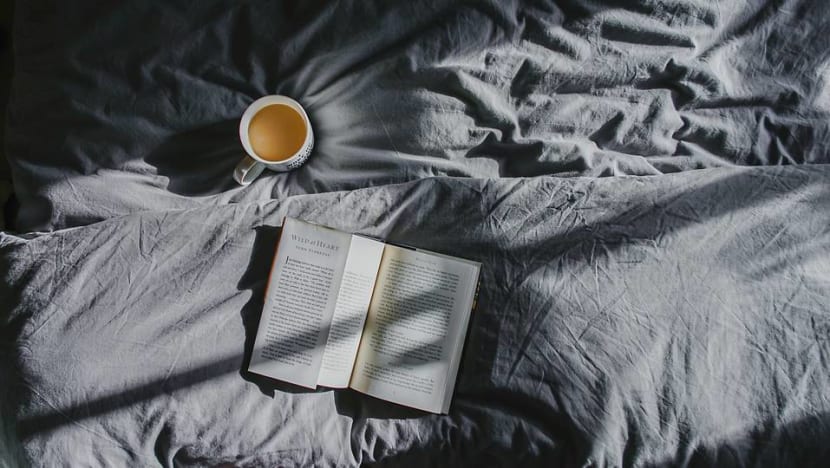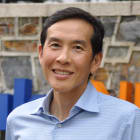Commentary: Revenge bedtime procrastination in Singapore is coming at a cost
Many people feel the strong need to reclaim time for themselves, freeing themselves from the constant demands of their jobs, before sleep. But this can hurt their physical and mental health, say NUS academics.

(Photo: Pexels/Cottonbro)
SINGAPORE: The benefits of good sleep are well known.
After a poor night of sleep, we feel groggy, moody, and we have trouble staying focused. There is enough evidence that people do not perform their best when they are not well-rested.
Yet, many of us find ourselves regularly going to bed later then we had intended. Even if we have a busy day ahead, we may be tempted to stay up later than we know is good for us.
Bedtime procrastination, as this phenomenon is called, was first described by Dutch psychologist Dr Floor Kroese and refers to a pattern of choosing to go to bed later than intended despite being aware of negative consequences.
READ: Commentary: Does it really get harder to sleep after a certain age?
READ: Commentary: Immobility during COVID-19 and its effects on our sleep, physical activity and well-being
This behaviour was found in 53 per cent of persons in the original Dutch study in 2014. In work we conducted among Singaporean adolescents, university students, and working adults, 28 per cent of the 321 respondents surveyed over the past two years indicated that they occasionally go to bed later than intended, while 55 per cent reported frequently struggling with this.
People often find it hard to disengage from their activities and go to sleep. When we are catching up on our favourite TV drama shows, it may not seem so important to be refreshed the next morning.
(Intermittent fasting could help you lose weight but at what cost? And doesn’t it ignore conventional wisdom on not skipping breakfast? Experts unpack the myths on CNA's Heart of the Matter.)
JUST ONE MORE EPISODE
In this era of digital media, it is hardly surprising that people feel tempted to stay up late. The Internet provides an endless offering of entertainment, education, and everything in between.
Studies have shown that using e-devices close to bedtime can disrupt sleep and push back bedtime. Phones can have an alerting effect due to the content and light emitted. Often, we are engrossed in the media and cannot resist the urge to watch just one more YouTube clip.
Our data shows that people who use their phones more heavily during the hours before bedtime, sleep later by 40 minutes on average, compared with a group of light phone users.
Furthermore, 65 per cent of respondents indicated that scrolling on their phones, or engaging with some types of electronic media, was one of the activities that kept them from going to bed on time.
SWEET REVENGE
Another factor that may influence our sleep habits is our work or school pressure.
A Duke-NUS study found that Singaporean secondary school students spent on average 2.9 hours a day on homework during weekdays and 4.5 hours during weekends. Time spent on homework was directly related to shorter time spent in bed for sleeping. On weekdays, the primary pre-condition for going to sleep, was that homework was finished.
READ: Commentary: The struggle mums in their 30s, 40s face juggling young kids and work is real
READ: Commentary: It will be a waste if parents don’t keep flexible work arrangements
Browsing our phones might be the last thing that we do before sleeping, but often the time before is packed with school and work assignments. In our data, after digital media, finishing school or work assignments was the second most often mentioned reason for bedtime procrastination.
Moreover, high pressure and packed schedules could push our sleep back further, as we seek to regain some “me time”.
This phenomenon has recently become known as “revenge bedtime procrastination”.
Popularised on Chinese social media, many people describe how they feel the strong need to reclaim time for themselves, freeing themselves from the constant demands of their jobs.
Respondents in our study described that after a day of work, family duties, and chores they need some time to relax. “Watching videos, reading online. That keeps me happy” as one respondent puts it.
WHAT CAN WE DO ABOUT IT?
While it is easy to recognise this issue, it is harder to prevent it. Studies have shown that providing people with knowledge about the importance of sleep, does not necessarily result in people adopting better sleep habits.

This is known as the intention-behaviour gap. To plug this gap between knowledge and good intentions, we often need actionable strategies to achieve our goals.
Here are some things that we can do to counter the urge to procrastinate our bedtime.
First, have a planned bedtime, and have a bedtime plan. Adolescents whose parents set bedtime sleep significantly longer than those whose parents do not.
But equally important is to have a plan in mind on how to go about it. What time should you get ready for bed? When should you put away your phone? What are the obstacles to achieving your plan?
READ: Commentary: We’re sleeping more since the pandemic, but we aren’t feeling rested
READ: Commentary: Tracking your child’s online activity should not be done covertly
Be intentional about limiting screen time before bed. Start a movement among your friends not to message beyond 10pm, except for emergencies.
Second, plan to get some physical exercise. Only 35 per cent of Singaporeans exercise regularly and overall, 44 per cent of physical activity comes from commuting which has been significantly reduced as a result of hybrid work.
Moderately intense aerobic exercise benefits sleep and often exposes one to natural light. Morning light exposure perks up the brain and keeps our circadian clock from drifting to seeking a later bedtime.
Third, there needs to be a sea change in how we influence one another about after-hours work. The potential time savings and work-hour productivity gains from not having to battle through the daily commute should be gains. Both employees and managers should co-operate to complete planned tasks in a timely fashion.
Homework can be cut if learning is paced in a manner that accommodates different learning rates to ensure thoughtful assimilation.
This will leave time to all to collectively reflect on how to be more effective instead of merely ticking off check-boxes.
READ: Commentary: The slow death of cable TV and why cutting the cord isn’t too painful
Everyone should collectively review the hosting of serial virtual meetings where participants are mentally absent. Consideration should also be given for time and energy chipped away by childcare and home-based learning.
Lastly, we should be aware that, in the attention economy, our waking hours have become a commodity.
Netflix CEO Reed Hastings once said that the company’s biggest competitor is sleep. Companies are competing for your engagement and will fight for every opportunity to do that.

Whether through dwelling on whether to make that online purchase, e-games, video streaming, sports offerings or e-gossiping, the addictive nature of engaging in any or all of these activities through a single device is something few can resist.
Be aware that you may be trading your health and mental well-being for taps, clicks and swipes. By cutting your sleep, you may become the victim of your own revenge.
Stijn Massar is a Senior Research Fellow at the Sleep and Cognition Laboratory, Centre for Sleep and Cognition, Yong Loo Lin School of Medicine, National University of Singapore.
Professor Michael Chee is the principal investigator of the Sleep and Cognition Laboratory, and director of the Centre of Sleep and Cognition, Yong Loo Lin School of Medicine, National university of Singapore. He is an avid advocate of sleep for cognition, health and well-being.
















